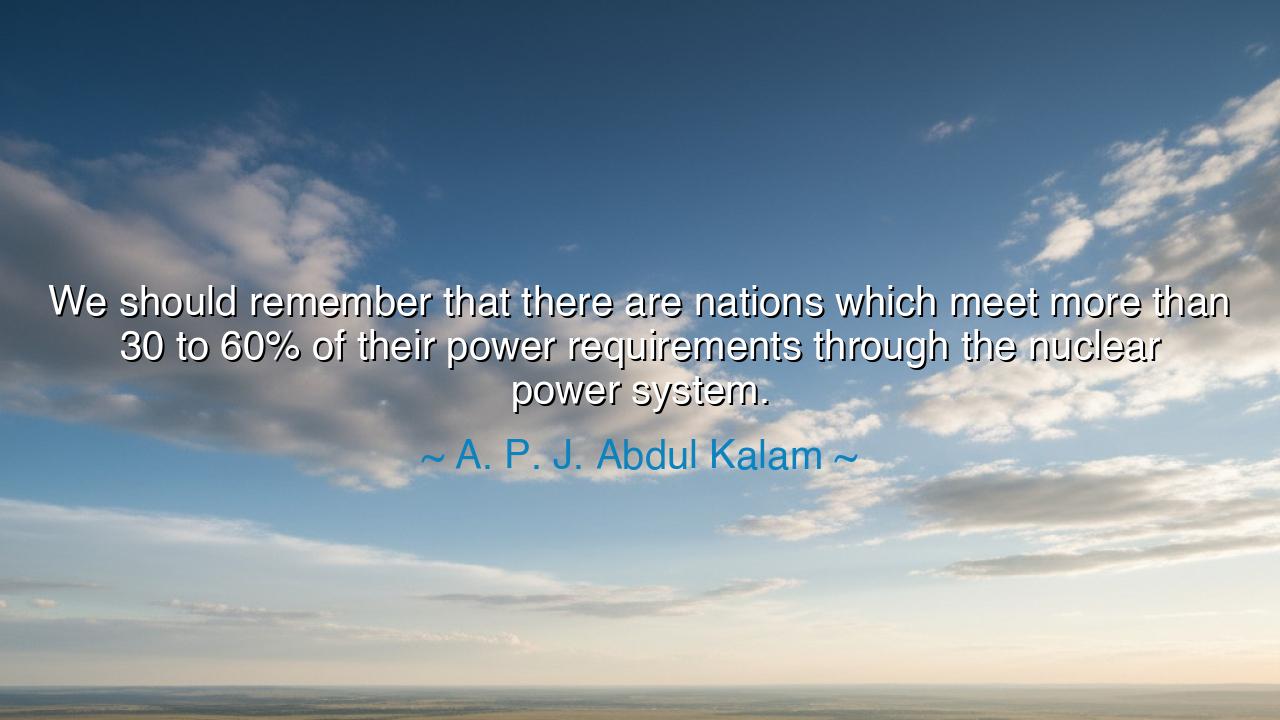
We should remember that there are nations which meet more than
We should remember that there are nations which meet more than 30 to 60% of their power requirements through the nuclear power system.






The words of A. P. J. Abdul Kalam shine with the urgency of foresight: “We should remember that there are nations which meet more than 30 to 60% of their power requirements through the nuclear power system.” In this call, he urges us not merely to consider statistics, but to awaken to the reality that strength, progress, and independence are bound to the mastery of energy. For in the modern age, power is not only political or military, but the light that burns in every home, the current that drives every factory, the force that sustains civilization itself.
From the ancient fires of wood and coal to the modern engines of oil and gas, mankind has always sought energy to build his world. Yet these sources are finite, and they consume the earth as they burn. The advent of nuclear power marked a turning point: the ability to harness the atom itself, to draw from the heart of matter a force vast enough to move cities and nations. Kalam’s words remind us that others have already embraced this gift, while many still hesitate at its threshold.
History reveals the vision of France in the aftermath of the oil crises of the 1970s. Determined never again to be shackled by dependence, the French nation turned to nuclear power with courage and resolve. Within a generation, more than three-quarters of its electricity flowed from its reactors, granting it resilience, stability, and freedom from the shifting tides of global fuel markets. This stands as a living parable of Kalam’s teaching: that those who master energy master their destiny.
Yet the warning is also clear: if some nations advance while others lag, a new inequality is born—not of wealth alone, but of energy, the very lifeblood of progress. To ignore this truth is to surrender sovereignty, to remain forever at the mercy of others. To embrace it, wisely and safely, is to rise as an equal among the nations of the earth.
Therefore, let this wisdom be passed down: the future belongs to those who secure their own power. Energy is the shield of independence and the sword of development. To harness the nuclear fire is to command a source vast, enduring, and mighty. Kalam’s words call not for fear, but for courage—for the boldness to grasp what others have grasped, and to stand radiant, not in the shadows of dependence, but in the light of self-reliance.






AAdministratorAdministrator
Welcome, honored guests. Please leave a comment, we will respond soon